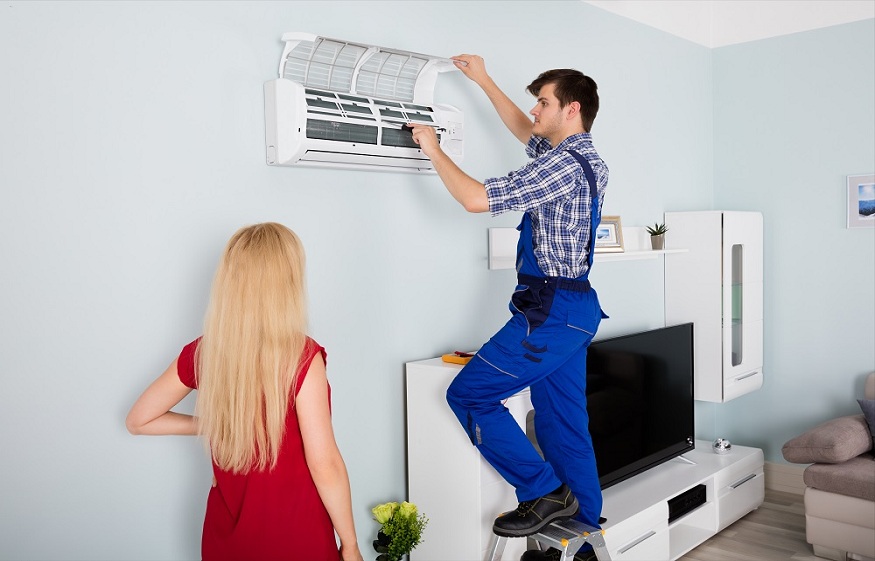When summer rolls around, most people turn on their air conditioning unit without a second thought. But when an AC unit doesn’t undergo regular maintenance or has gotten older, it runs the chance of becoming overheated.
Overheating is often indicated by the unit working for just a few minutes before tripping the circuit breaker. Anyone sensitive to excessive heat or wants the comfort of a cool space should know what to do to prevent overheating and when to call in a professional. There are also seven good reasons why your air conditioning isn’t cooling found in this article here.
1. Clogged Air Filter
Not everyone reads the instruction manual for their appliances and may not know that an AC unit has a filter that requires regular maintenance.
When an AC’s air filter is not replaced regularly, the air quality in a home or workplace can be significantly reduced. The cost of running an AC unit with a clogged filter is likely to become very costly as the unit has to work harder to keep air flowing even before the chance of overheating occurs.
If the thought of locating and replacing a filter is too overwhelming or confusing, contact a local HVAC company. They can confirm if the filter is the cause of the AC overheating, replace it, and even provide instructions on how to do it the next time it’s due to be changed.
2. Chemical Problem
Air conditioning units use refrigerant, a chemical compound that runs through the unit and cools warm air into cold air. The refrigerant flows through refrigerant lines, and if the unit is operating correctly, those lines should be cold to the touch. The refrigerant may be the problem when the unit is running but blowing out warm air.
Unless someone has HVAC experience with air conditioners, it’s a good idea to call a professional for help. Working with chemicals can be dangerous and is best left to the pros.
3. Keep the Coils Clean
A condenser unit in an air conditioner moves the refrigerant through the unit and takes heat out so cool air can blow in. If the condenser coils are dirty and take up the space a condenser needs to perform its task; an air conditioner may malfunction.
Dirty coils can cause an air conditioner to struggle to keep an area cool. The harder an AC unit needs to work, the greater the chance of overheating.
For those who can recognize the condenser coils, it’s simple to purchase a coil cleaner and get the job done. For those unfamiliar with the process, a specialist can come in to confirm and rectify the problem.
Conclusion
Overheating can be prevented through regular AC maintenance. Between how much a unit is used throughout the year and any air quality issues, many factors can impact how frequently an air conditioner will require maintenance.
Regular maintenance for an air conditioning unit is an excellent investment. Not only does it keep a unit running smoothly, but it can also prevent many problems that are often very expensive to fix. Hiring an HVAC technician for regular maintenance will keep indoor air comfortable and clean with a smooth running air conditioner.

